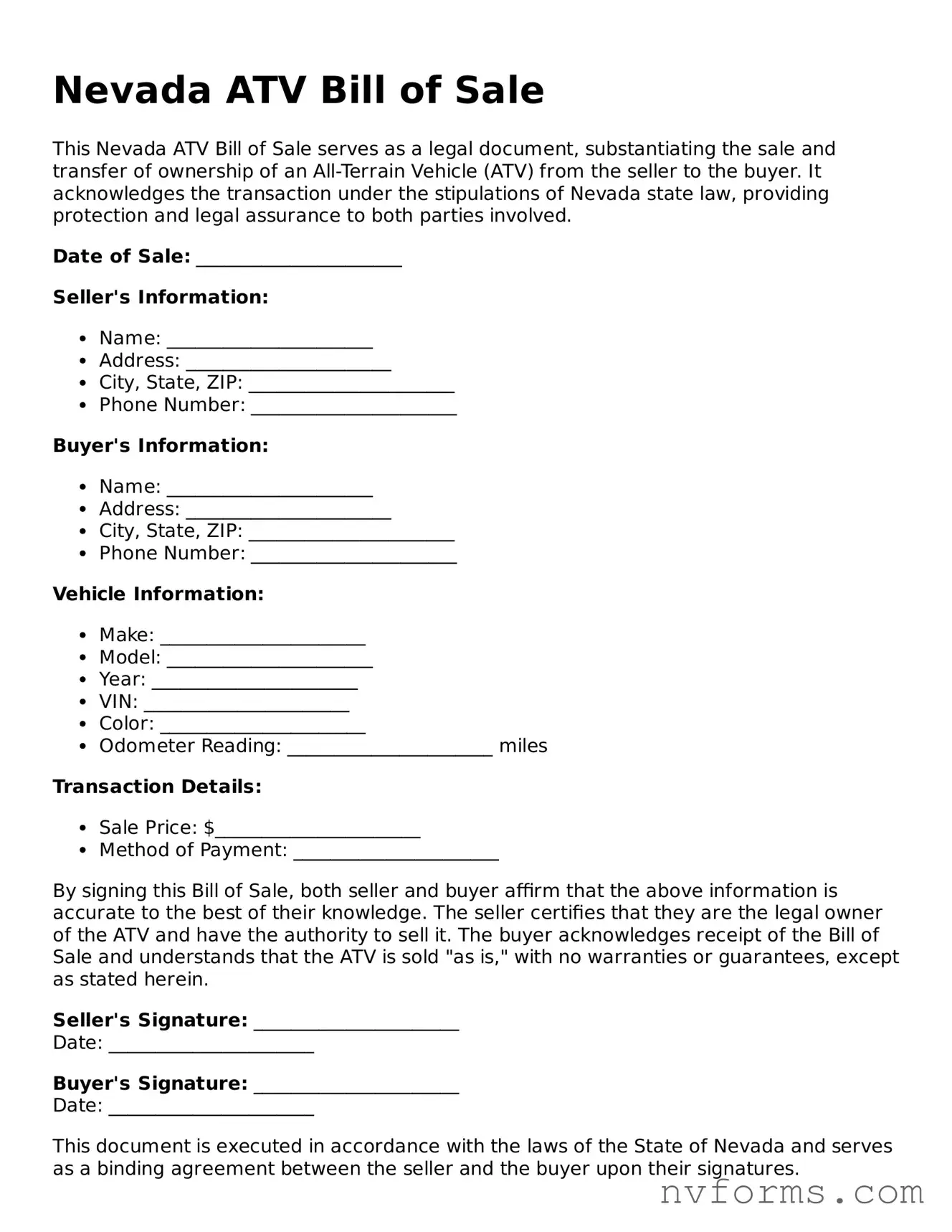Free ATV Bill of Sale Form for Nevada
The Nevada ATV Bill of Sale form is a document that records the transfer of ownership of an all-terrain vehicle from a seller to a buyer. It acts as a proof of purchase and is necessary for the registration process in Nevada. This form ensures both parties have a record of the sale, detailing the condition, price, and any warranties associated with the ATV.
Launch Editor

Free ATV Bill of Sale Form for Nevada
Launch Editor

Launch Editor
or
⇩ ATV Bill of Sale File
Don’t stop now — finish the form
Finish ATV Bill of Sale online using an easy step-by-step flow.